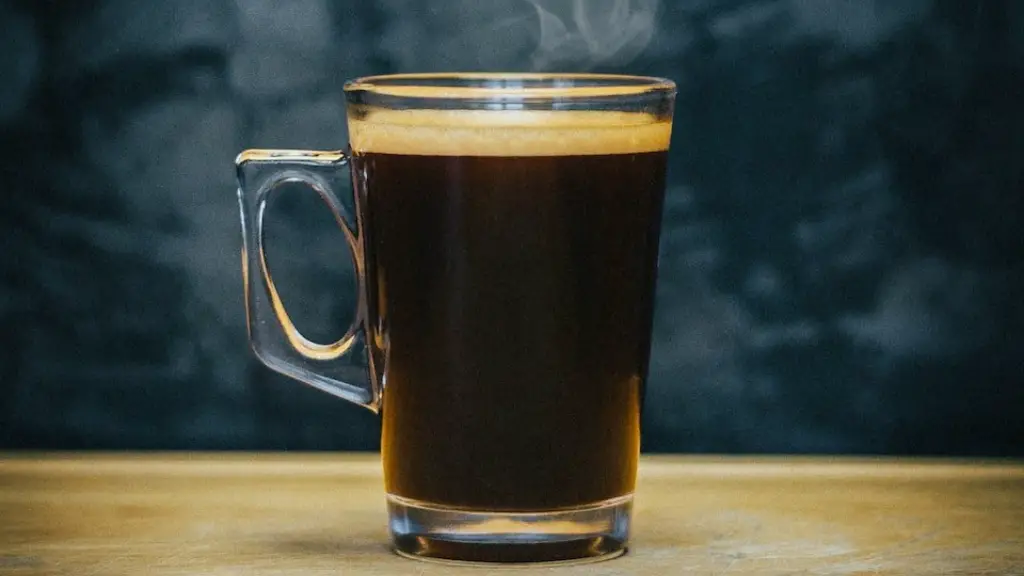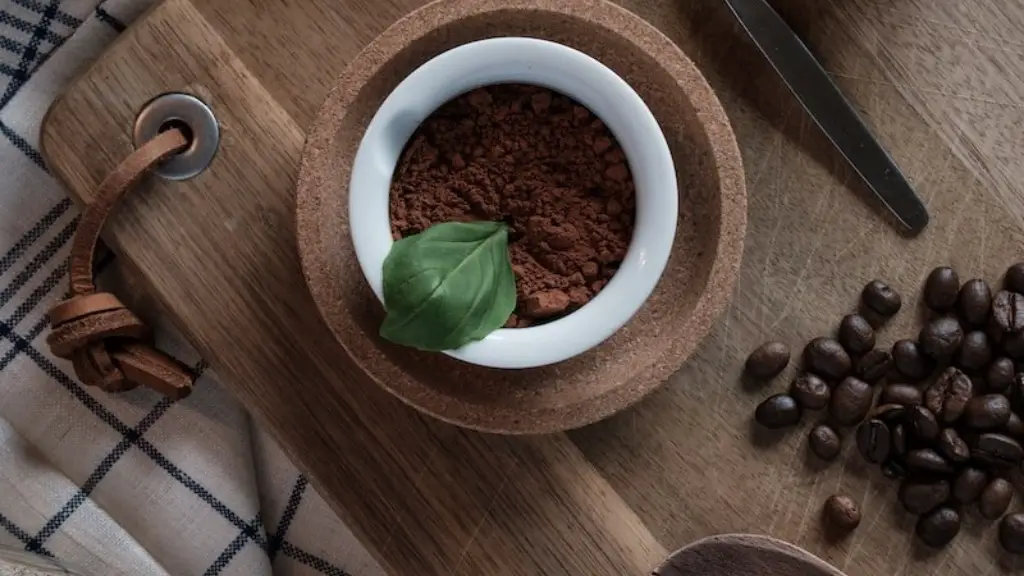The health benefits of intermittent fasting (IF) have been widely touted in recent years. Often associated with a diet that restricts all food intake on fasting days, there is one potential snag: many individuals wonder if the consumption of coffee is allowed while fasting. This is an understandable concern; intermittent fasting has been found to be very helpful in weight loss and even improvement of certain metabolic markers. So, can one still enjoy a cup of coffee while fasting, or will it interfere with the benefits of the diet?
First, a quick refresher on intermittent fasting. Evidence-based IF typically involves consuming all household meals during an 8-hour period each day and decreasing overall caloric intake. While some have extreme diets that may involve long periods of complete fasting, this type of approach is generally not sustainable for the long-term. As with other diets, it’s important to experiment and find an eating plan that works for you.
So, when it comes to coffee, what can you drink while intermittent fasting without it being considered breaking the fast? Caffeinated beverages such as black coffee and tea are often consumed during fasting periods because they do not produce an insulin response. In other words, they do not break your fast, though this is still up for debate.
The result: some studies have found that consuming black coffee while fasting may help boost weight loss and improve metabolic health markers more than fasting without the beverage. For example, one study of 20 adult men demonstrated that consuming black coffee while in a fasted state was associated with an increase in metabolic rate and a decrease in hunger levels.
Other studies suggest that drinking coffee during intermittent fasting may help reduce food cravings and improve concentration. For example, one study of 24 participants found that consuming a caffeinated beverage prior to a meal as part of an intermittent fasting regimen was associated with reduced food cravings and improved concentration.
Aside from potential advantages for weight loss and hunger levels, there are also some potential drawbacks to consider when drinking coffee during fasting. For example, the high caffeine content in many beverages can lead to feelings of anxiousness and jitteriness. Additionally, the high sugar and calorie content of some caffeinated beverages can negate any potential benefits of fasting.
Caffeine’s Impact on Intermittent Fasting
The American Journal of Clinical Nutrition explains that caffeine has a stimulating effect and it can cause the body to burn more calories while exercising. This means that it can help with boosting weight loss when used in conjunction with intermittent fasting. However, this benefit is only applicable if the right kinds of caloric restriction are followed. If the person is not careful and cuts their calorie intake too much, this can be potentially dangerous.
Caffeine also has a diuretic effect, meaning that it causes the body to produce more urine which can lead to a decrease in fluid levels. This can be a problem during an intermittent fasting period, as the body needs plenty of fluids to stay in good health. Additionally, too much caffeine can cause the person to become restless and irritable, so it is important to ensure that coffee consumption is kept to a minimum during an IF period.
It can also be beneficial for those participating in an intermittent fasting diet to switch to decaffeinated coffee during fasting periods, as many of its beneficial effects are diminished in caffeinated drinks. Decaff coffee is still capable of providing a boost in concentration levels and alertness without the accompanying jitteriness.
Alternatives to Beverages While Intermittent Fasting
In addition to coffee, other non-caloric beverages are also acceptable if consumed during IF. One example is black tea, which can provide an additional dose of antioxidants and other beneficial compounds. Additionally, there are other beverages that can provide hydration and a “treat” for fasting days, such as herbal teas and lemon water. While these don’t provide calories, they can still provide some nutrients and add a bit of flavor to a fasting day.
Another option is to consume a cup of hot broth or vegetable juice while participating in an intermittent fasting diet. Not only can these drinks provide hydration, they can also provide some beneficial nutrients while offering minimal calories. Additionally, they also contain fluids that may help to reduce appetite, which can be beneficial for those trying to adhere to an intermittent fasting regimen.
Finally, coconut water is a great choice for hydration during an IF period. It contains beneficial electrolytes that can replenish those lost during a fast and can help the individual to feel fuller for a longer duration of time. Coconut water can also be beneficial in supporting energy regulation and boosting blood sugar levels.
Importance of Moderation When Drinking Coffee and Intermittent Fasting
It is clear that caffeine can have beneficial effects when it comes to intermittent fasting and weight loss. However, it is also important to emphasize moderation when it comes to drinking coffee. Too much caffeine can lead to jitteriness and negative effects on health, so it is important not to over-consume while participating in an intermittent fasting diet.
It is also important to remember that the effects of consuming coffee on intermittent fasting will vary from person-to-person. Some individuals may be able to enjoy regular caffeine intake without any negative effects, while others may find themselves with headaches, nausea, and other negative side-effects. As such, it is important to experiment with different levels of caffeine consumption to determine what works best for your body while fasting.
Concerns with Drinking Too Much Coffee
In addition to the potential side-effects of caffeine, it is important to be aware of other potential health issues that can be associated with drinking too much coffee. For example, high caffeine consumption can result in increased levels of the stress hormone cortisol, which can reduce focus, increase anxiety levels, and also impair immune system functioning. Additionally, caffeine can also interfere with sleep, which is an important part of an intermittent fasting regimen.
Finally, consumption of caffeinated beverages can also interfere with digestive function. This can be a concern for those participating in an intermittent fasting diet, as the breakfasts consumed on non-fasting days should be nutrient-rich and formulated in such a way as to aid in digestion. Therefore, it is important to limit caffeine consumption when intermittent fasting in order to ensure that the digestive system is not disrupted.
Why Coffee Does Not Break Intermittent Fasting
The question then remains: does drinking coffee while intermittent fasting count as breaking the fast? In short, the answer is it depends. Generally speaking, coffee itself does not “break” the fast as it does not contain any calories or carbohydrates. Therefore, it simply does not effect insulin levels or disrupt autophagy, a process whereby cells break down and repair themselves.
That said, it is important to consider the added ingredients and calories that may be found in some coffees. Milk and sugar, for example, can add calories and carbohydrates, thus breaking a fast and potentially causing a spike in insulin levels. Therefore, it is important to bear in mind what ingredients have been added to a coffee prior to deciding whether or not it counts as “breaking” a fast.
Can Drinking Coffee Enhance Intermittent Fasting?
Research suggests that drinking coffee while participating in an IF regimen may result in some potential benefits. As mentioned previously, some studies have suggested that coffee may help to boost weight loss and reduce hunger levels. Additionally, caffeine can also help with increasing concentration and alertness, both of which can be useful during extended fasts.
It is also important to note that coffee has been found to contain some beneficial compounds that can help with weight loss, such as chlorogenic acid. Additionally, research suggests that some of the compounds found in coffee, such as quercetin, may also help improve metabolic health. Therefore, it is possible that consuming coffee while participating in an intermittent fasting regimen can help to enhance its beneficial effects.
Conclusion
In conclusion, there is no definitive answer when it comes to drinking coffee while participating in an intermittent fasting regimen. Generally, coffee itself does not break the fast and some studies have found that it may help to boost the benefits of the diet. However, it is important to consider the added ingredients and calories in some coffees and to exercise moderation when it comes to caffeine consumption.





